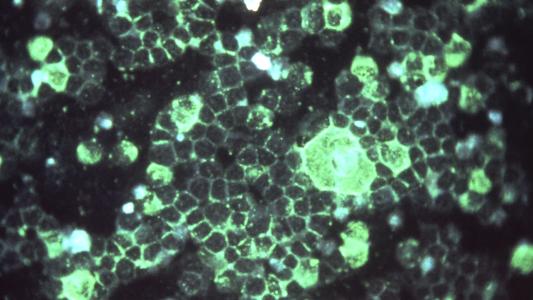Since the 1960s, scientists have known coronaviruses live among us, attacking in waves year after year. Coronavirus is just one of the many viruses that cause the common cold and accounts for up to 26% of all upper respiratory tract infections in adults. However, these infections rarely cause death, and for decades, a coronavirus vaccine wasn’t a high priority. However, COVID changed that, so dozens of nonprofits, government agencies, and vaccine makers are working to develop a single, universal vaccine that will protect against all coronavirus variants.
According to a new study in Science Translational Medicine, a team of English researchers might have discovered how to accomplish this. Based out of the Francis Crick Institute, the team has identified a specific area of the SARS-CoV-2 spike protein that offers protection against the new variants of SARS-CoV-2 as well as the relatively harmless cold-causing strains.
Why current COVID vaccines aren’t great
The current COVID vaccines are a miraculous feat of science. Under normal circumstances, it can take 10-15 years to develop a vaccine if everything goes smoothly. The COVID vaccines, however, were created in less than a year. One reason for this miraculous success was scientists’ international cooperation and dedication to solving a common problem. Luckily for all of us, those researchers were not starting from scratch.
SARS-CoV-2, the virus that causes COVID, is a member of the coronavirus family. Four common strains are linked to the common cold. But there have been nastier coronaviruses. One sparked the SARS epidemic in 2002, and one led to the MERS epidemic in 2012. Scientists have been studying this family of viruses for decades, which gave them a head start when COVID hit. Two critical discoveries in this process were that all coronaviruses use their infamous spike (S) protein to stick to the membrane of host cells and that the body protects itself by generating antibodies that neutralize the S protein, essentially preventing it from attaching. Consequently, all currently licensed COVID vaccines target this protein.
Unfortunately, the S protein mutates rapidly. The Alpha strain that arose in the United Kingdom exhibited modest resistance to antibodies raised against the strain that originated in Wuhan, which is the basis for all currently licensed COVID vaccines. Beta, Gamma, Delta, and, especially, Omicron are even more resistant. All these new variants have developed mutations in predominantly one region of the S protein, the S1 subunit. Another region, the S2 subunit, is relatively stable across all variants of SARS-CoV-2 and the cold-causing strains. Kevin Ng and his colleagues at the Crick Institute believe the S2 area could be the key to a universal coronavirus vaccine.
S2 subunit: A universal coronavirus vaccine?
“The S2 area of the spike protein is a promising target for a potential pan-coronavirus vaccine because this area is much more similar across different coronaviruses than the S1 area. It is less subject to mutations, and so a vaccine targeted at this area should be more robust” said Ng in a recent press release.
Ng’s advisor and professor of retrovirology, George Kassiotis, added, “The expectation for a vaccine that targets the S2 area is that it could offer some protection against all current, as well as future, coronaviruses. This differs from vaccines that target the more variable S1 area which, while effective against the matching variant they are designed against, are less able to target other variants or a broad range of coronaviruses.”
The S2 subunit of the spike protein has, until recently, been disregarded as a viable vaccine target. This is because antibodies can only bind to S2 after the virus has bound to a cell. Consequently, there is a narrow window of opportunity for anti-S2 antibodies to attach and neutralize the virus before it enters the host cell. However, anti-S2 antibodies were isolated from patients during the 2002 SARS epidemic and the current COVID pandemic, suggesting that they could defend against multiple types of coronaviruses.
One shot to rule them all
To determine if an S2-based vaccine could offer protection against multiple types of coronavirus, the researchers immunized mice against S2 from SARS-CoV-2 using two doses of a DNA vaccine administered four weeks apart. The researchers found that the mice created antibodies that were able to neutralize several other animal and human coronaviruses, including coronaviruses that cause the common cold; the original strain of SARS-CoV-2; the D614G mutation that dominated in the first wave; the Alpha, Beta, Delta, and original Omicron strains; and two bat coronaviruses.
Nikhil Faulkner, Ng’s co-author of the study, said, “While a potential S2 vaccine would not stop people [from] being infected, the idea is it would prime their immune system to respond to a future coronavirus infection. This would hopefully provide enough protection to survive an initial infection during which they could develop further immunity specific to that particular virus.”
This article was reprinted with permission of Big Think, where it was originally published.






